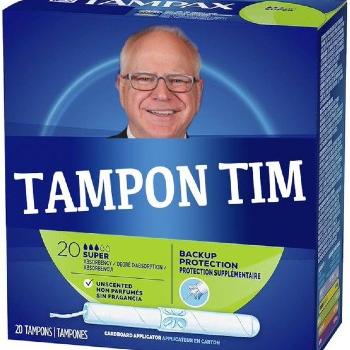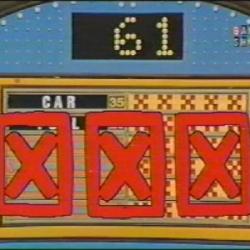Howard Kurtz offers a long-but-shallow examination of The Washington Post's credulous prewar reporting about Iraq's supposed weapons of mass destruction and the Bush administration's supposed evidence for it.
Atrios has already done the heavy lifting in highlighting some of the godawful revelations and admissions in this piece, but here's my two cents.
To its credit, the Post did publish a dozen or so articles casting doubt on — and in some cases, disproving — many of the claims and assertions being made about WMD in Iraq. Those articles, however, tended to get buried deep in the paper, while the assertions and claims were trumpeted on the front page:
"The paper was not front-paging stuff," said Pentagon correspondent Thomas Ricks. "Administration assertions were on the front page. Things that challenged the administration were on A18 on Sunday or A24 on Monday. There was an attitude among editors: Look, we're going to war, why do we even worry about all this contrary stuff?"
One advantage of reading the Post online is that it puts an A24 story and an A1 story on a more equal footing. Those of us who read the online paper noticed that this "contrary stuff" was supported by sources and evidences in a way that the front-page (and editorial page) claims were not.
But, according to some of the Post's editors, sources and evidence are not a newspaper's job. Newspapers don't have an obligation to ferret out the actual facts, only to repeat what people in power say. As reporter and former assistant managing editor Karen DeYoung says:
"We are inevitably the mouthpiece for whatever administration is in power. … If the president stands up and says something, we report what the president said."
Got that? So if an elected official stands up and says the moon is made out of green cheese, a newspaper is not obliged to challenge this assertion.
As Michael Massing's article, and forthcoming book, "Now They Tell Us" demonstrates, there is little we know now about Iraq's lack of WMDs that we didn't already know before the war. It was in the press, in the newspapers — even if only on Page 24 — long before it was in David Kay's report.
That's why bloggers who had been reading those newspapers realized that Colin Powell's Feb. 5, 2003, speech to the U.N. Security Council was riddled with errors and falsehoods (see my earlier "A Big Steaming Powell" or Ron K.'s " Colin Powell, the Adlai Moment and the O.J. Question").
What was startling at the time was how the editors of those same newspapers found Powell's speech so convincing (Massing has a damning collection of their willfully blind praise). It seems the editors of the Post hadn't merely buried their own articles contradicting Powell's claims on the aluminum tubes — they didn't even believe those articles to be true.
Leonard Downie Jr., the executive editor of the Post, admits as much:
Downie said the paper ran several pieces analyzing Powell's speech as a package on inside pages. "We were not able to marshal enough evidence to say he was wrong," Downie said of Powell. "To pull one of those out on the front page would be making a statement on our own: 'Aha, he's wrong about the aluminum tubes.' "
I just don't get that. Powell was wrong about the aluminum tubes. The Post knew it. I knew it. Powell knew it. And the assembled members of the Security Council knew it. So why exactly does Downie think such a statement doesn't belong in the newspaper?
(Kurtz doesn't explore this aspect of the Post's coverage of Powell's speech, but it's worth noting that while the American newspapers found his performance so utterly convincing, the speech was actually a failure. It was supposed to be convincing to the members of the Security Council, but they were decidedly unpersuaded. Why? The Post never bothered to ask. They simply accepted the trope that all other nations, like the French, are perverse. No sense interviewing any of them, then. Why bother asking, say, the Canadian government why they didn't find Powell's speech persuasive when we already know that it's because of reflexive Canadian anti-Americanism.)
Downie comes across as rather dim in Kurtz's report. "The voices raising questions about the war were lonely ones," he says. This is a wonderful piece of circular reasoning. Those who questioned the war were being ignored by the media, so Downie decided he should ignore them as well.
And Downie's final comment is just screamingly obtuse:
"People who were opposed to the war from the beginning and have been critical of the media's coverage in the period before the war have this belief that somehow the media should have crusaded against the war," Downie said.
No. We just wish Downie's newspaper had attempted to discover whether the assertions of public officials could be reconciled with or supported by the facts. You know, journalism.
Downie thinks his job is only to repeat to us what others have said, not to try to find out whether or not it's true. That's not journalism. That's gossip.












